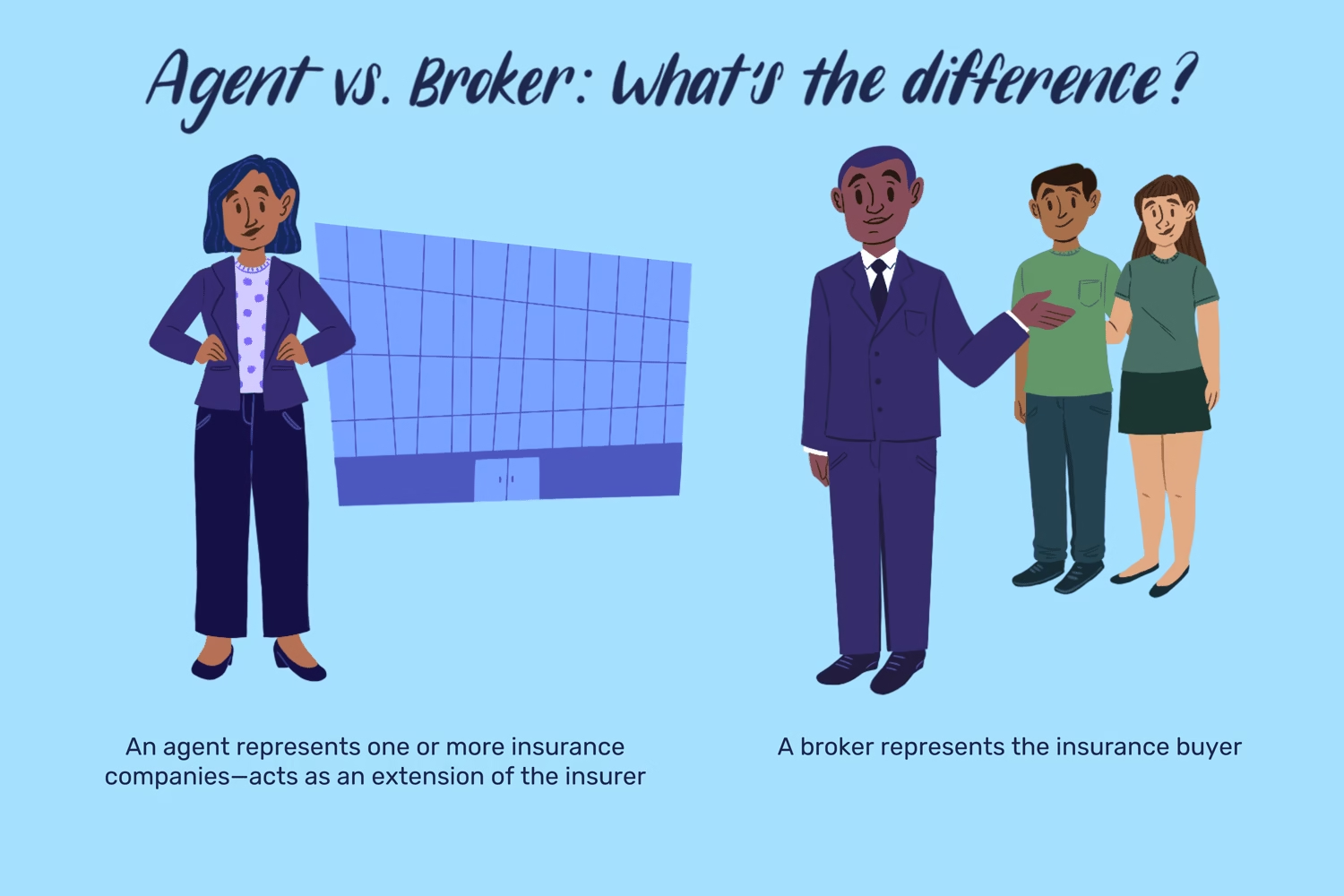When it comes to purchasing insurance, the sheer number of options and complexities in policies can feel overwhelming. This is where insurance brokers and agents step in to help guide your decisions. But while both play pivotal roles in the insurance industry, their responsibilities, loyalties, and approaches differ significantly. Understanding these distinctions can help you determine which professional is best suited to your needs.
In this comprehensive guide, we’ll delve into the roles of insurance brokers and agents, explore their key differences, and provide insights to help you decide who to work with based on your unique circumstances.
What Is an Insurance Broker?
An insurance broker is an independent professional who works on behalf of the client rather than the insurance company. Their primary role is to help clients find the best insurance coverage to suit their specific needs by comparing policies across multiple insurers.
Responsibilities of an Insurance Broker
- Assessing Client Needs
Brokers begin by understanding their client’s insurance requirements. For example, they’ll consider factors such as your assets, risks, and budget. - Shopping Around
Brokers have access to a wide range of insurance providers. They compare policies, premiums, and coverage options to find the best fit for their client. - Advising on Policies
Brokers offer impartial advice on the pros and cons of various policies, helping clients make informed decisions. - Facilitating the Purchase
Once a policy is chosen, brokers handle the paperwork and assist with the purchase process. - Providing Ongoing Support
Brokers often serve as a point of contact for policy changes, renewals, and claims assistance.
Advantages of Working with a Broker
- Impartiality: Brokers aren’t tied to any single insurance company, so their advice is unbiased.
- Wide Range of Options: They can access policies from multiple insurers, offering more choices.
- Tailored Solutions: Brokers specialize in finding policies that match unique client needs.
Potential Drawbacks
- Broker Fees: Some brokers charge fees for their services, though many earn commissions from insurers.
- Limited Familiarity with Specific Companies: While they know many insurers, brokers may lack deep knowledge of each provider’s internal processes.
What Is an Insurance Agent?
An insurance agent, on the other hand, represents one or more insurance companies. They act as intermediaries between the insurer and the client, selling policies and providing customer support.
Types of Insurance Agents
- Captive Agents
- Work exclusively for one insurance company.
- Offer only that company’s products.
- Independent Agents
- Represent multiple insurance companies.
- Provide a wider selection of policies compared to captive agents.
Responsibilities of an Insurance Agent
- Educating Clients
Agents explain the features, benefits, and limitations of the insurance products they sell. - Selling Policies
They help clients purchase insurance policies that align with their needs and the offerings of the insurance company they represent. - Maintaining Relationships
Agents often provide ongoing support, such as helping with policy updates and renewals. - Claims Assistance
Agents may assist clients in initiating claims and navigating the process with the insurer.
Advantages of Working with an Agent
- In-Depth Knowledge: Agents have a deep understanding of the policies and procedures of the companies they represent.
- Established Relationships: Their connections with insurers can sometimes expedite processes like claims.
- No Direct Fees: Agents earn commissions from the insurance company, so clients usually don’t pay extra for their services.
Potential Drawbacks
- Limited Options: Captive agents can only offer products from one insurer, reducing your choices.
- Possible Bias: Their loyalty lies with the insurer, which might influence their recommendations.
Key Differences Between Insurance Brokers and Agents

| Aspect | Insurance Broker | Insurance Agent |
|---|---|---|
| Loyalty | Represents the client’s interests | Represents the insurer’s interests |
| Product Range | Access to multiple insurance providers | Limited to one or a few insurers (depending on type) |
| Impartial Advice | Offers unbiased policy recommendations | May prioritize policies from their represented insurer(s) |
| Fees | May charge fees or earn commissions | Typically earns commissions only |
| Specialization | Focused on matching policies to client needs | Specializes in selling policies offered by their insurer(s) |
| Claims Assistance | Acts as an intermediary but with less direct influence | May have closer ties with the insurer, which could expedite claims |
Who Should You Work With?
Deciding between a broker and an agent depends on your specific needs, preferences, and circumstances.
When to Work with an Insurance Broker
- You Want Multiple Options
If you prefer to compare policies from various insurers without doing the legwork yourself, a broker is a better choice. - You Have Complex Needs
For tailored solutions, such as insuring a small business or covering high-value assets, brokers excel at finding niche policies. - You Value Impartial Advice
Brokers offer unbiased recommendations based solely on your needs.
When to Work with an Insurance Agent
- You Trust a Specific Insurance Company
If you already favor a particular insurer, working with one of their agents can streamline the process. - You Prefer Familiarity
Agents are often well-versed in their insurer’s products, making them adept at explaining details and processes. - You Need Quick Access to Policy Changes or Claims
Agents’ close relationships with their insurers can sometimes result in faster service.
Tips for Choosing the Right Professional
- Assess Your Needs
Determine whether you need a wide range of options (broker) or focused expertise on a specific insurer’s policies (agent). - Check Credentials
Ensure the broker or agent is licensed in your state and has a good reputation. - Ask About Fees
Clarify whether the professional charges fees or earns commissions, so you know what to expect. - Evaluate Communication
Choose someone who communicates clearly and responds promptly to your questions. - Read Reviews and Get Referrals
Look for online reviews or ask friends and family for recommendations to find a trusted professional.
The Hybrid Approach: Using Both
In some cases, you might benefit from working with both a broker and an agent. For example:
- Use a broker to explore multiple options and narrow down your choices.
- Once you’ve decided on a company, work with an agent to finalize the policy and receive ongoing support.
Conclusion
Understanding the roles of insurance brokers and agents is crucial to making informed decisions about your coverage. While brokers offer impartial advice and access to a broad range of policies, agents bring specialized knowledge and a close connection to specific insurers.
By evaluating your needs, preferences, and priorities, you can choose the professional who aligns best with your situation. Whether you opt for a broker, an agent, or both, their expertise can make navigating the complex world of insurance significantly easier—and ultimately help you secure the coverage that’s right for you.
Now Read:
What to Do If Your Insurance Claim Is Denied
How to File an Insurance Claim: A Step-by-Step Guide
International Health Insurance for Digital Nomads
Bundling Insurance Policies: How to Save Money on Coverage
